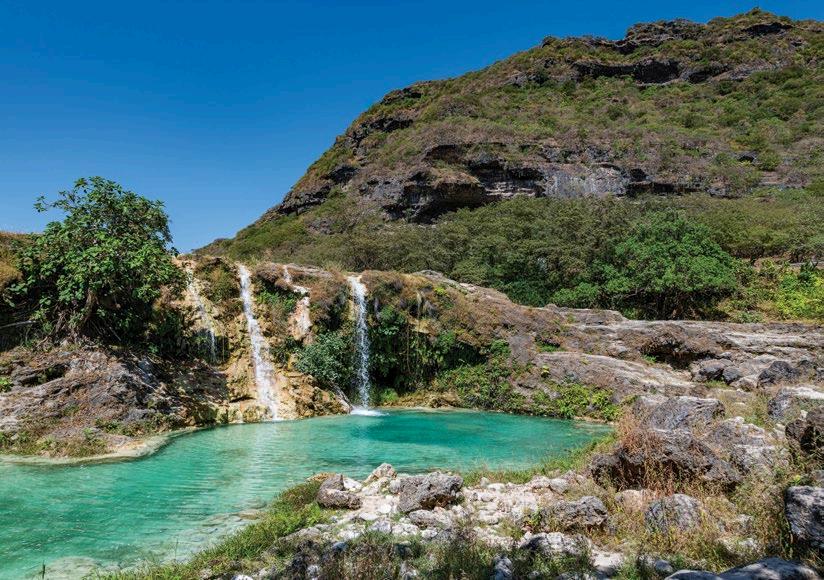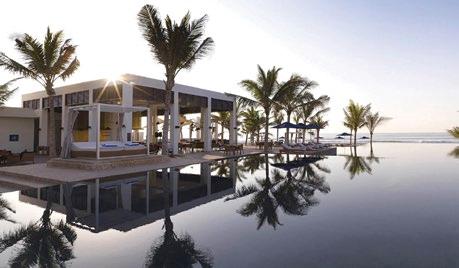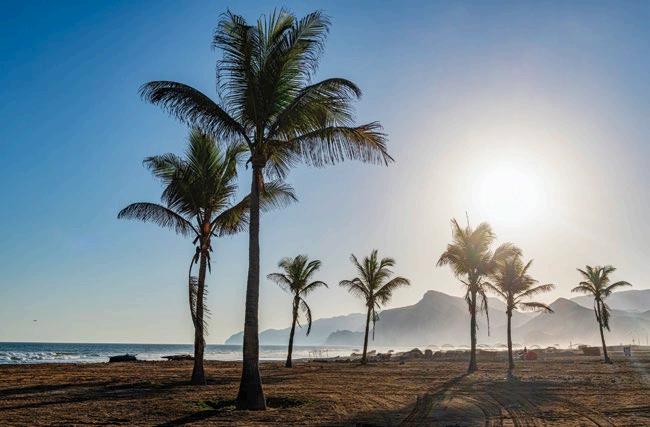
1 minute read
Oman WHY YOU SHOULD VISIT
This Monsoon Season
Looking to escape the summer heat with a quick getaway? If you’re a fan of the great outdoors, Oman’s khareef season should be at the top of your travel bucket list. From June to September, khareef season, also known as monsoon season, is one of the best times for waterfalls, scenic drives, hiking, kayaking, lush green landscapes, and exploring Oman’s incredible natural features. Just a two-hour flight (or 12-hour drive) from Dubai, Salalah has it all. From sandy beaches to gushing waterfalls, green mountains to UNESCO World Heritage Sites, the historical city is bursting with things to see and do, come rain or shine.
Check In
For a luxury break, retreat to the blissful surroundings of Al Baleed Resort Salalah by Anantara. Nestled between a private beach and freshwater lagoon, Al Baleed Resort Salalah by Anantara is the perfect place to unwind and rejuvenate after an adventure-packed day. Plus, throughout khareef season, the resort is offering 20 per cent off bookings, including daily breakfast, until end of August with rates starting from Dhs1,612. anantara.com

KEY FACTS:
Temperature: 20 to 25ºC

Getting there: Wizz Air from Dhs318 return, Flydubai from Dhs1,355 return

Reconnect With Nature
For nature lovers, Wadi Darbat is a must-visit. The beautiful valley is ideal for families and can be explored in many different ways: from paddle-boarding to picnics, hiking to powerboats. Another must-see waterfall is Ayn Athum, which is around a 20-minute scenic drive in the Dhofar mountains and only visible during khareef season. Insider tip: Stop at one of the many famous local fruit huts for a drink of fresh coconut.
Get Lost In History
Adjacent to the hotel, Al Baleed Archaeological Park Salalah is a UNESCO World Heritage site famous for its historical ruins dating back to the 12th century, frankincense museum, bird watching, and more. Entrance to the site is free of charge or you can get a private tour with a Salalah Guru who will take you along the coast to explore the ruins of Sumhuram and the lost city of Ubar and Wadi Dawqah.
Words: Aarti Saundalkar










